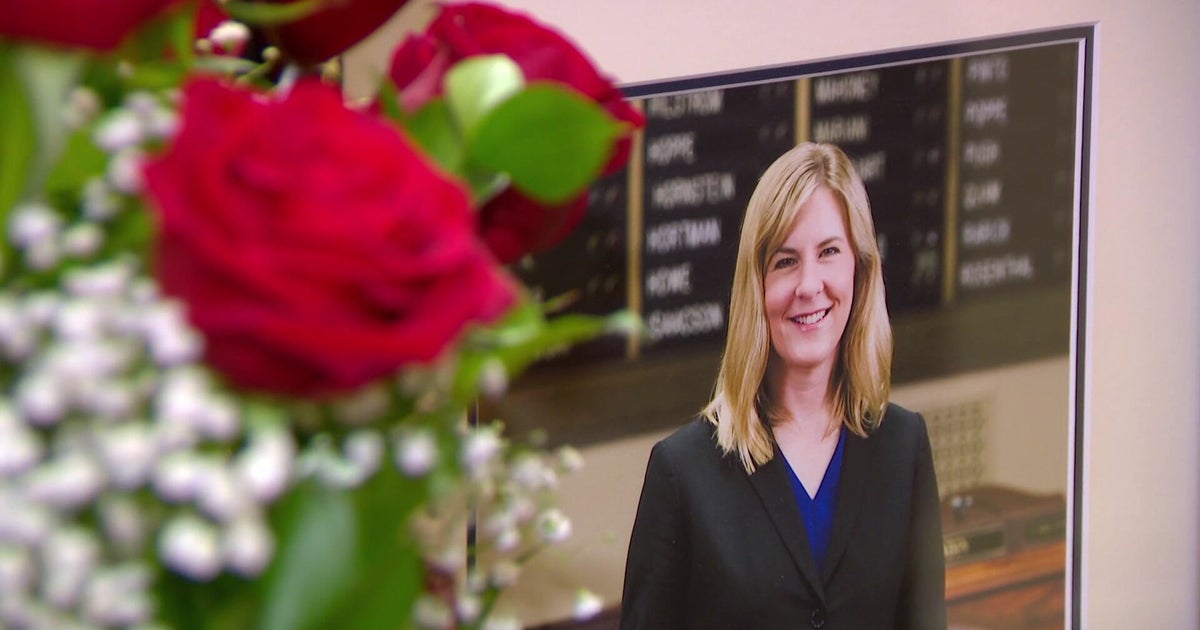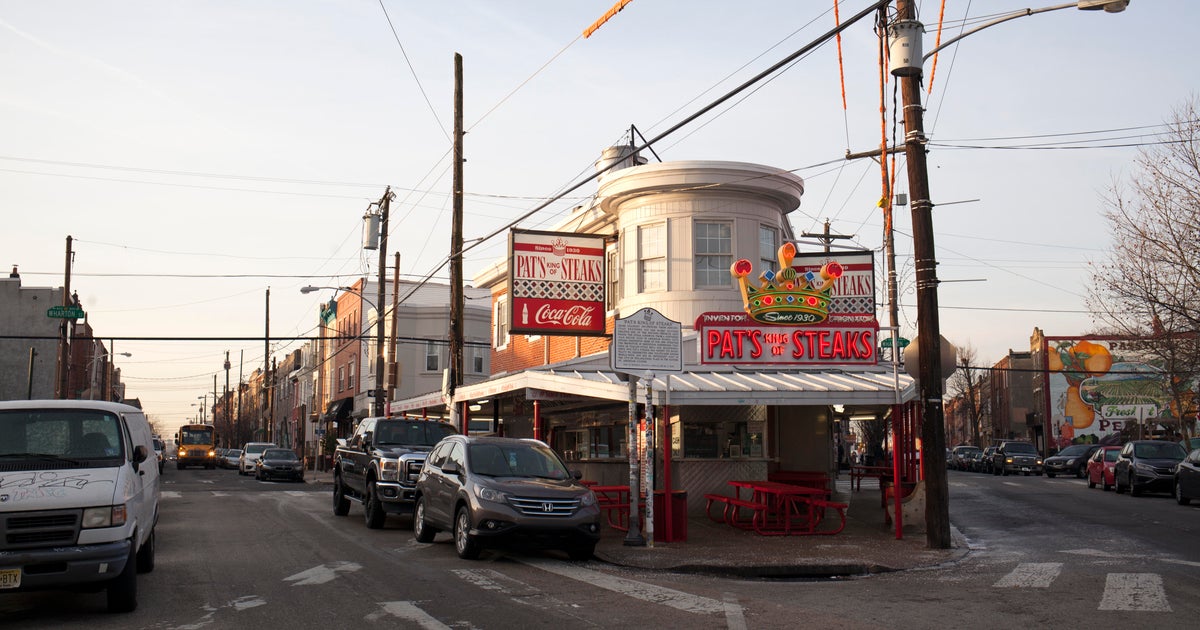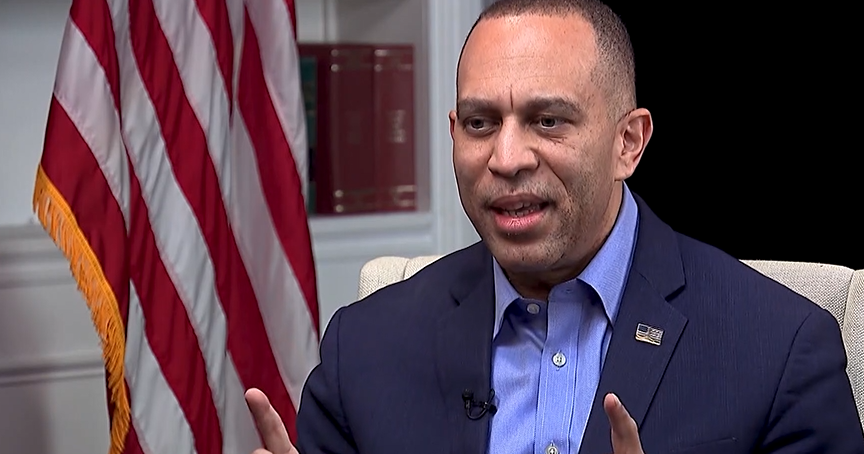House Passes Concealed Carry Plan Opposed By Senate Leader
SPRINGFIELD, Ill. (AP) — Gun owners could carry concealed weapons in Illinois, the last state in the nation to prohibit it, under legislation that swept through the House Friday with the backing of the powerful Democratic speaker from Chicago, a city torn by violence despite what critics claim are the nation's toughest firearms restrictions.
The historic 85-30 vote would allow the carrying of concealed guns, a legislative task compelled by a federal appeals court ruling and precipitated by House Speaker Michael Madigan's turnabout.
But its obliteration of all local gun laws, including Chicago's ban on assault-style weapons, drew immediate resistance from Gov. Pat Quinn, a Chicago Democrat like Madigan. Quinn said the proposal endangers the public by pre-empting local gun laws, which have nothing to do with concealed carry, the only subject covered by the 7th U.S. Circuit Court of Appeals' decree.
"We need strong gun-safety laws that protect the people of our state. Instead, this measure puts public safety at risk," Quinn said in a prepared statement.
Senate President John Cullerton, another Democrat from Chicago, called the pre-emption provision "offensive." Cullerton said he would meet privately with his majority caucus Monday to decide how to proceed. A Senate concealed-carry plan, which overrules local control only by requiring a statewide carry program, is on the Senate floor awaiting a vote.
The appeals court declared Illinois' last-in-the-nation prohibition on public possession of weapons unconstitutional in December and gave lawmakers until June 9 to adopt a carry system.
The measure, sponsored by ardent gun-rights advocate Rep. Brandon Phelps, a Democrat from Harrisburg in deep southern Illinois, outlines a so-called "shall issue" law, meaning law enforcement officials would be required to issue permits to qualified gun owners. Only about 10 states, such as New York, have more restrictive "may issue" laws, which give police more discretion to deny permission.
Despite deep, conservative roots outside of Chicago accompanied by fervent support for the Second Amendment's right to keep and bear arms, the Prairie State has for decades resisted a carry law because of gun-wary Windy City Democrats. The nation's third-largest city is a leader in murders and violence despite what muscular restrictions on weaponry.
"Criminals are cowards," said Rep. Mike Bost, a southern Illinois Republican. "If they know there's an opportunity they're going to get caught or get shot — because they don't like a fair fight — they're not going to commit the crime."
The plan would require the Illinois State Police to issue a carry permit to anyone who gets the required 16 hours of gun-safety training — most in the nation — passes a background check and pays a $150 fee. Local police or a county sheriff could object to an application, which a statewide review panel of criminal-justice and mental-health experts would review.
Madigan said his change of heart came after a mid-April test on a more restrictive concealed-carry bill backed by Chicago Democrats polled just 31 votes. Despite the way the current idea mimics Phelps' earlier plan, the speaker said it significantly broadens the places that would be off-limits to guns, including all of the places Chicago officials requested, such as mass-transit buses and trains, parks and street festivals.
Local school officials would no longer be able to decide whether they wanted to allow guns. Private property owners could ban guns on their land.
If Illinois blows the June 9 deadline without a law, cities and counties could enact their own gun restrictions — or none at all, supporters say, creating "more chaos and havoc on our streets," Republican Rep. Jim Durkin of Western Springs said.
"Let's not just look what's good for one part of the state, let's look at what's good for the whole state," Phelps said when asked about Quinn's comments. "I would hope under his leadership, he would not want this to go off the cliff."
In fact, with 220 so-called "home-rule" communities — generally larger cities such as Chicago, Peoria, Bloomington and Springfield which are free from state oversight on many local policy decisions — Madigan said there could be just as many different gun standards if there's no statewide standard.
"As people attempted to move about the state, they would contemplate the possibility that there would be a change in the rules up to 220 times," Madigan said.
The Phelps bill would wipe out local regulations such as Chicago's assault-weapons ban, gun-purchase taxes and required reporting of lost and stolen guns. Rep. Christian Mitchell called it a "massive dismantling of local administration of gun safety."
"It is the opposite of small government," Mitchell said. "This bill is massive overreach, it is dangerous, it is right in time for summer" when crime heats up.
The National Rifle Association has said nothing about the House plan since it surfaced Wednesday, but Phelps acknowledged having the powerful gun lobby on the sidelines likely helped.
Monday, Senate Democrats will discuss their proposal. Cullerton said he's willing to forgo its requirement for a special "endorsement" — and extra fee— for qualified gun owners to carry in Chicago. The Senate could act on the House plan after stripping it of the distasteful provisions overruling local laws.
"The part that's offensive in the bill," Cullerton said, "is the part that has nothing to do with conceal and carry."
(TM and © Copyright 2013 The Associated Press. All Rights Reserved. This material may not be published, broadcast, rewritten or redistributed.)






